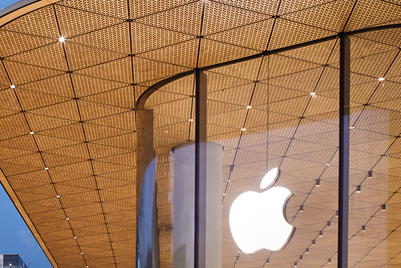Intel's Ultrabook format is meant to compete directly with Apple's MacBook Air, which has similar form specifications and is also powered by Intel CPUs. Ultrabooks are meant to influence the slumping PC market against rising competition from smartphones and tablets.
Intel launched the Ultrabook in China during Chinese New Year in 2012 with an unprecedented social experiment. The brand sponsored 10 consumers with an Ultrabook and 140 yuan (US$23) each. They were asked to make their way home for the festival using only this limited budget and help from Tencent Weibo netizens—aimed at showcasing how technology is shaping everyone’s lives.
Another Ultrabook campaign in 2012 included a Wechat wordplay game riding on the popularity of a local talk show related to the London Olympics. Intel sponsored an Ultrabook in a lucky draw for participants who were able to link common sporting keywords such as performance, speed, responsiveness with Ultrabook product attributes.
These initial campaigns aided exposure for the Ultrabook, but desirability for this new class of computers is still low, since most Ultrabooks were selling at more than 6,000 yuan, making them too expensive to drive widespread adoption in China.
Intel is also still caught between a need to keep OEM manufacturers satisfied that they can profit from the credibility the Ultrabook brand offers, and pushing the tech brand itself.
David Sun, director of marketing services, Intel China, told Campaign Asia-Pacific the awareness level for Ultrabooks rose from almost zero at the beginning of 2012 to 40 per cent at the end of the year. This year, Intel is taking a "branding-plus approach" for the purpose of demand generation for the gadget in the country.
The Ultrabook's target audience focuses on 18- to 34-year-old, white-collared ambitious types who lead tech-savvy lifestyles, with education at least at undergrad levels.
There was an increment in digital adspend after a part of Intel's TV advertising budget was moved to online video, which was planned to supplement TV, according to Sun.
"We deployed a dual-screen strategy to optimise reach and frequency since the middle of 2012. Both channels play an equally important role, and 2013 marks the start of an official plan to fully utilise this strategy," he said.
A campaign adapting the above global TVC to the local market will start this month and run for six weeks on both satellite TV channels and online video channels such as Youku-Tudou, iQiyi, Sohu Video—reminding both the public and business partners that the Ultrabook is "powered by Intel".
Sun calls this "marketing inter-presence", combining both "air coverage" (TVC, online video, social media) and "distribution coverage" (various sales channels).
Wen Jia, head of measurement & analytics, Omnicom Media Group (Intel's media agency) elaborated how TV GRP is very expensive, especially in Beijing and Shanghai, making online video ads more effective than TV in terms of ROI.
Leveraging peak viewership periods for online video in China (lunchtime and between 8 pm and 12 am), Intel saw 41 per cent growth in terms of dual-screen reach and frequency in Q3 last year, she revealed.
Post-campaign analysis for four tier-1 and 13 tier-2 cities around October by third-party ad monitoring firm AdMaster helped OMD optimise the campaigns and achieve that percentage, even as the online video budget remained flat in the quarter.
"We had to track results for some cities such as Hunan and Jiangsu which may not have achieved the ideal cross-screen GRP," commented Vincent Yan, CEO of AdMaster.
This year, Intel has revised its price points to be more competitive in the hope of propelling the Ultrabook sales engine. "At its basic offering, the Ultrabook can be very affordable, under 4,000 yuan," Sun said.
He hopes this will translate to concrete purchase intent and lead to more sales. To achieve this, promotional partnerships with OEM manufacturers Lenovo, HP, Acer, Samsung, Asus and others, as well as with distributors and retailers such as Suning, 360buy, Tmall, and PC Mall, are being worked out.
The Ultrabook push will be extended into tier-two, -three and -four cities in 2013. The lower-tier city inclusion this year brings the total target cities to 119, a first for Intel as most other tech brands concentrate their marketing resources to under 50 cities that has the most consumer potential.



.jpg&h=334&w=500&q=100&v=20250320&c=1)


.png&h=334&w=500&q=100&v=20250320&c=1)






+(900+x+600+px)+(2).jpg&h=268&w=401&q=100&v=20250320&c=1)


.jpg&h=268&w=401&q=100&v=20250320&c=1)


.png&h=268&w=401&q=100&v=20250320&c=1)
